How Much Water Do You Really Need?
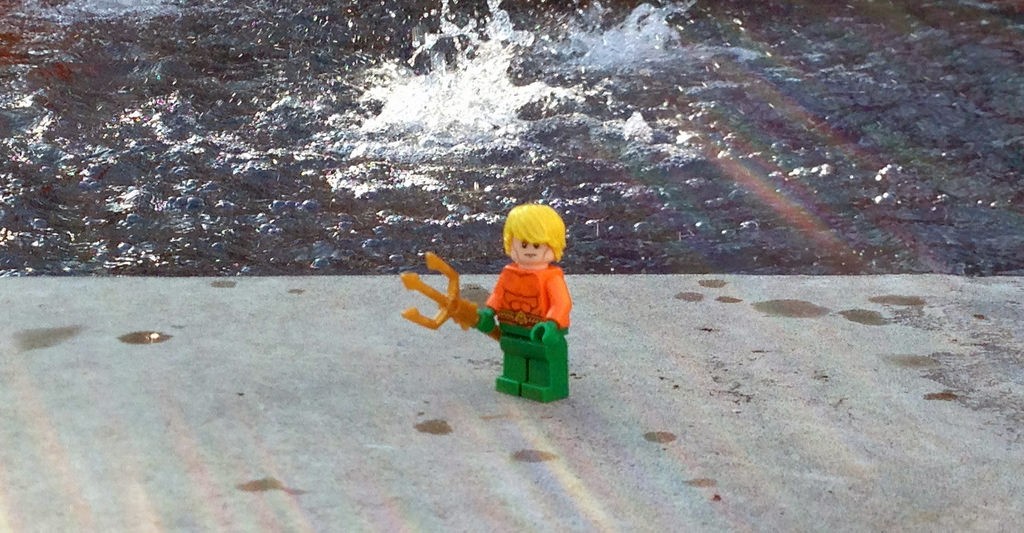
Nerd Fitness: Aquaman lives in it.
The Waterboy will tell you that it’s the only thing you’ll ever need.
Conventional wisdom will tell you that you need eight glasses a day.
We all know we should drink water and stay properly hydrated, but how much do we REALLY need? How much is too much? What about sports drinks like Gatorade – is there a time and place to consume them?
Today on Nerd Fitness we’re going to bust all of the myths associated with water, determine how much water you should consume, and how that changes if you’re exercising regularly.
Do I need 8 glasses of water every day?
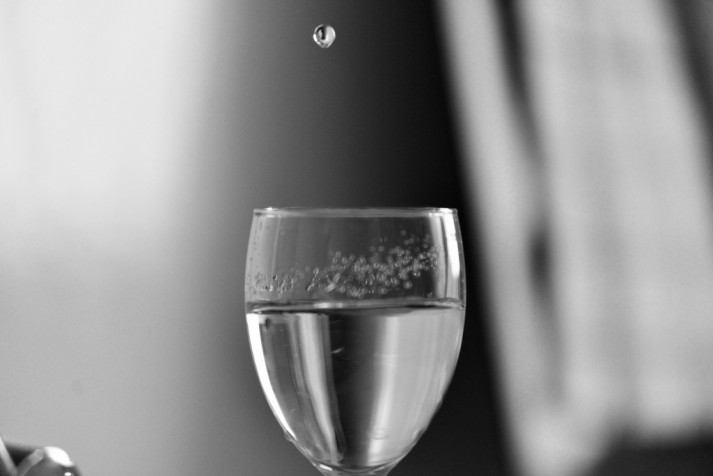
First and foremost, yes you need water.
Boom. Article done. I’m going on break.
Water is good for you; a significant portion of your body is composed of water, and when you lose fluids through sweat, exertion, bodily functions, etc, consuming water can help you replenish fluids.
HOWEVER…
The whole “8 glasses of water a day” thing is not law. In fact, there’s no real proof of this being a proper amount at all.
As we’ve told you before (the perfect workout, the perfect diet), we are all unique snowflakes, and we all require different amounts of water! Somebody that exercises with regularity and goes on a lot of long runs will require more water than somebody who exercises less regularly. There’s no exact amount of water that works for everybody.
So where did this magical “8 glasses of water a day” number initially come from? Nobody really knows. According to Snopes:
Back in 1945 the Food and Nutrition Board of the National Research Council stated that adults should take in about 2.5 liters of water per day (which is roughly the equivalent of eight glasses of water), but it also noted most of that intake level was already satisfied through the consumption of food without the need for the additional drinking of water.
That’s right, you get a SIGNIFICANT amount of water from the food you are consuming. A huge percentage of our bodies is made of water, a huge percentage of the planet is made up of water…why wouldn’t a huge percentage of our food be composed of water too?
So, yes. Consuming water is important. But the 8 glasses a day case doesn’t hold water (ha!), as we get a significant portion of our daily water from our food we consume. Things like fruits and vegetables, even meat, is composed of a tremendous amount of water, all of which counts towards our ‘hydration quotient’ for the day.
You know what else counts? EVERY OTHER BEVERAGE WE DRINK!
Things like tea, coffee, even dreaded sugary beverages, milk, juices, and alcoholic beverages.
How much water DO you need?
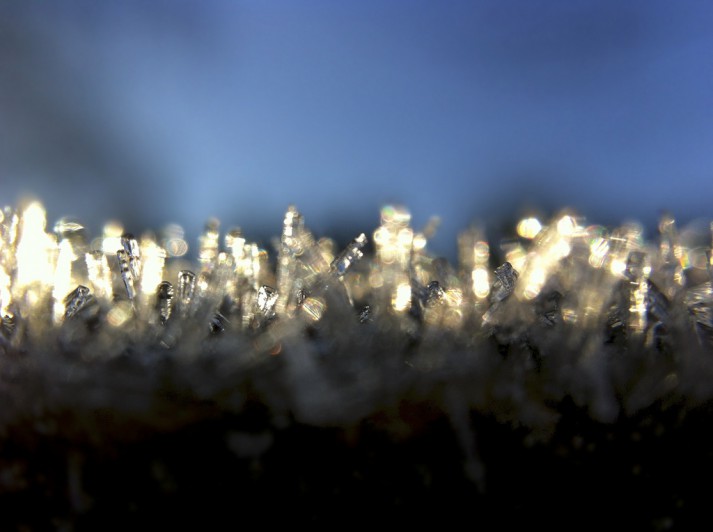
So you know you don’t need to always drink 8 glasses, it could be less and it could be more. So how much do you need?
Honestly? Drink when you are thirsty. That’s it. I’m going on a second break!
Kidding. Seriously though, your thirst is a pretty damn good indicator of when you should consume more water. Do you think dogs and cats and elephants worry about hydration levels? Nope – they simply consume water when their body tells them that they are thirsty.
As nerds, we tend to overthink, overanalyze, and drive ourselves crazy with too much info.
Now, if you happen to be one of those people that needs MORE advice than that, check your urine color.
Weird, I know.
This chart provides a great color test. You want to aim (not literally) for a “pale straw” or “lemonade” color. I’m not quite sure what color “pale straw” is, but everybody knows what lemonade looks like. If your pee is starting to resemble lemon-lime gatorade, you’re dehydrated. If your pee comes out a different color all together, I would probably seek medical attention immediately. You’re welcome ![]()
And if your pee smells funny, don’t forget that you probably ate asparagus last night!
So what are the tell tale signs that something is wrong, that you are dehyradated?
According to the National Institute of Health, your primary signs of dehydration are:
- A feeling of thirst (duh)
- Dry or sticky mouth
- Low or no urine output; urine looks dark yellow
- Sunken eyes
- Lethargy
Yes, SEVERE dehydration can lead to significant issues, even comas. We’re going to try and avoid those.
Now, if you are feeling one or some of these symptoms, it’s possible you are dehydrated. Now, there’s yet another myth running around that says “if you are feeling thirsty, it’s already too late and you’re already dehydrated.”
This is also not true. If you are feeling the signs of dehydration, consuming some water can get you right back on track.
I now hear you saying: “Okay Steve, I got it. If I feel dehydrated, I’ll drink more water. To prevent that from happening, why don’t I just drink more water all of the time, even when I’m not thirsty!?”
Great question, my dear friend.
Can I be over-hydrated?
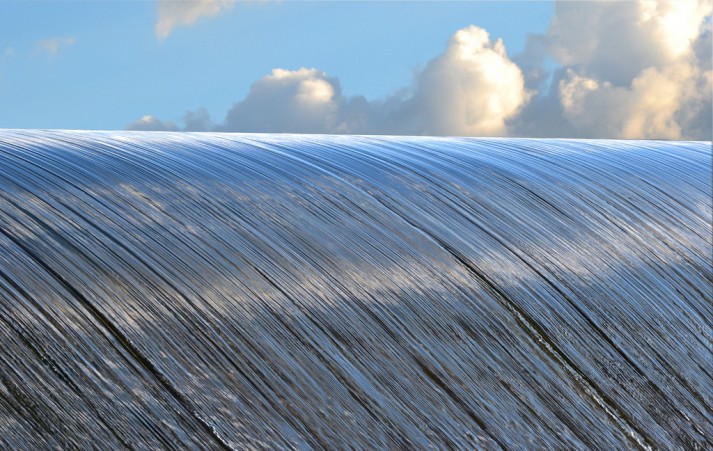
Believe it or not, this whole “hydration science” thing has been severely blown out of proportion.
How and why? One dude who decided if some water was good, more water must be better. Then, bandwagoners jumped on board with that idea, without things like “evidence” or “scientific proof” (much like the wrongful vilification of fat).
From Outdoors:
A single individual working for the U.S. military decided that water was a tactical weapon. That if the military could be encouraged to drink more during maneuvers, they’d have less heat stroke and less illness and they’d be more productive and could be better soldiers. It was purely his idea. It had no scientific basis at all. Two years later he published a paper supposedly saying that if the US soldiers drank 1.9 liters per hour [64 ounces] when they were exercising in the heat they would perform much better. There was utterly no concrete evidence that that was true. The problem was, his advice was embraced by the U.S. Military. They changed their drinking guidelines to say that you should now drink 1.9 liters per hour. The same people who drew up those guidelines were then invited by the American College of Sports Medicine to get involved with drawing up guidelines for runners.
In 1996, that culminated with the new American guidelines, which said that you must drink as much as tolerable during exercise, up to 40 ounces per hour. That became the mantra—that you had to drink before you became thirsty, and as much as possible during exercise. It was after that the problems of hyponatremia really become problematic around the world.
Combine this with the sports beverage industry (which I’ll skewer in a minute) and the bottled water industry (one of the best scams going, which I’ll get to as well), and you have a marketing engine that won’t slow down.
“Drink before you’re thirsty or it’s too late.” “Running a marathon? It’s better to overhydrate then not drink enough! Better safe than sorry!”
Actually, you CAN overhydrate, and it can be dangerous – it’s called hyponatremia, it’s an electrolyte imbalance from too much water consumed, and it’s bad news bears.
Want to know the people who suffer from hyponatremia the most?
Marathon and ultra runners.
Dr. Timothy Noakes, author of Waterlogged, explains that the overconsumption of water can lead to our body developing a severe imbalance of sodium in our systems, which can lead to a litany of side effects, even death.
What he’s found of people who have dealt with cases of exercise-induced hyponatremia:
“What I’ve found is that all of these people were probably drinking 1.2 liters per hour [40 ounces]. They continue to drink like that for four or five hours. Now, normally, if you’re drinking at that rate, you simply pass it out as urine. A person who is overdrinking will start passing urine so frequently that they’ll realize, This is stupid. I’m going to stop drinking.
But what happens in hyponatremia is that, for some reason, the brain interprets that the person is dehydrated and secretes the antidiuretic hormone. As a consequence, that prevents all urine production. Although they are sweating, they may be sweating at a rate of 20 ounces per hour, but they are drinking at a rate of 40 ounces per hour. Every hour they are accumulating 20 ounces. You can do that for a couple of hours, but once you’ve accumulated about 60 to 80 ounces of water in your body, all of your tissues become bloated, and the organ that becomes most affected is the brain.
The brain swells, and because it is in a rigid skull, it cannot swell very much. The more it swells, the more pressure, and that eventually squeezes the arteries supplying blood to the brain. Ultimately, there is less oxygen getting to the brain, and certain parts become damaged. “
Not good. One 2002 study found that 13% of Boston Marathon runners experienced hyponatremia. While many experience hyponatremia without being in immediate danger, it certainly isn’t healthy.
So, how do you combat this? Drink when you are thirsty! LISTEN TO YOUR BODY!
Time to answer your next question: “If drinking too much water causes an issue with sodium imbalances, what about sports drinks? They have electrolytes and sodium in them!”
Allow me!
What about sports drinks like Gatorade?
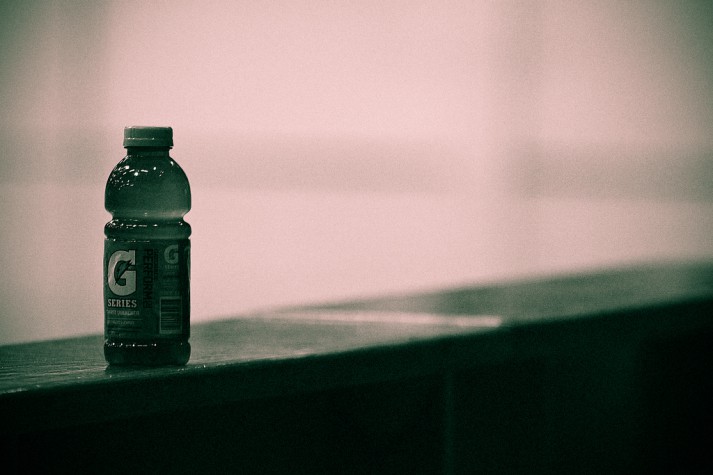
Michael Jordan is famously seen drinking gatorade during his flu game in 96, which tells us that without gatorade he wouldn’t have been able to play:
Little do they tell you that Michael also had another secret weapon at his disposal that helped him play up to snuff in that game: apple sauce!
So why is that famous commercial all about Gatorade and not about apple sauce? Because there’s wayyyy more money in the sports beverage industry, and they can sell on the term “replenish electrolytes” which is actually way simpler to do than they make it out to be.
We’re promised that without the careful combination of electrolytes and ingredients in Gatorade, we’re going to get dehydrated when exercising and suffer.
Here’s what happens: When you sweat, you lose fluids and electrolytes, especially sodium and chloride (which is why your sweat tastes salty…stop tasting your sweat you creep). Now, when you’re lacking fluids and electrolytes, your muscles and performance can suffer.
So that’s where Gatorade ALLEGEDLY will solve all of your problems.
Here’s the truth: unless you are exercising for hours and hours and hours, your electrolyte imbalance will not cause a drop in performance. If you are exercising for an hour or less, some sips of water to quench your thirst is more than enough. If you are exercising for hours upon hours, then additional products may help.
In these instance, Gatorade could help potentially, but there’s nothing in Gatorade that’s magic. It’s sugar, water, sodium, potassium, and then some artificial and natural flavoring to make it taste and look the way it does.
Want the benefits of gatorade while on your marathon run without having to buy gatorade? Make your own!
As Al Kavado talks about here, try mixing water, honey, salt, and/or lemon juice. Try different combos (mixing in some OJ or using coconut water!)
And just like that you, you have your sodium, some sugars, and rehydration. No fancy marketing required.
THE WORST THING YOU CAN DO?
Do some boring cardio for 20 minutes (which burns a minimal number of calories), and then chug a 32 oz gatorade (200 calories and 50+ grams of sugar!) and think you’re healthier. Negatory!
Water works just fine for 98% of the activities you will ever do.
What about coffee?
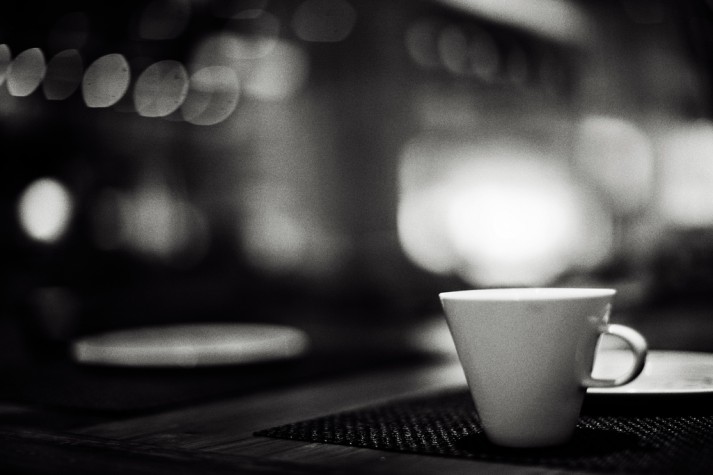
Time to put the myth busting cap back on: You’ve probably been told that drinking caffeinated beverages will dehydrate you.
That by consuming caffeinated beverages, you’re actually expelling more water than you are consuming.
This is another one of those bits of conventional wisdom hat gets blown way out of proportion.
Yes, caffeine is a mild diuretic. However, our bodies are pretty darn smart, and because all drinks are composed almost entirely of water, it more than makes up for the effects.
As pointed out here in this study:
Ingestion of caffeine in large doses (at least 250-300 mg, equivalent to the amount found in 2-3 cups of coffee or 5-8 cups of tea) results in a short-term stimulation of urine output in individuals who have been deprived of caffeine for a period of days or weeks. A profound tolerance to the diuretic and other effects of caffeine develops, however, and the actions are much diminished in individuals who regularly consume tea or coffee. Doses of caffeine equivalent to the amount normally found in standard servings of tea, coffee and carbonated soft drinks appear to have no diuretic action.
What about alcohol? Same thing. Alcohol has diuretic properties, but only causes dehydration when consumed at beyond normal levels. (Here’s our thoughts on being a healthy nerd that still can still enjoy an occasional cocktail.)
What ALLLLL OF THIS MEANS: Drink when you are thirsty. All liquids you consume count towards hydration, and only in cases of overconsumption can they negatively affect your hydration.
Beware the bottled water hype
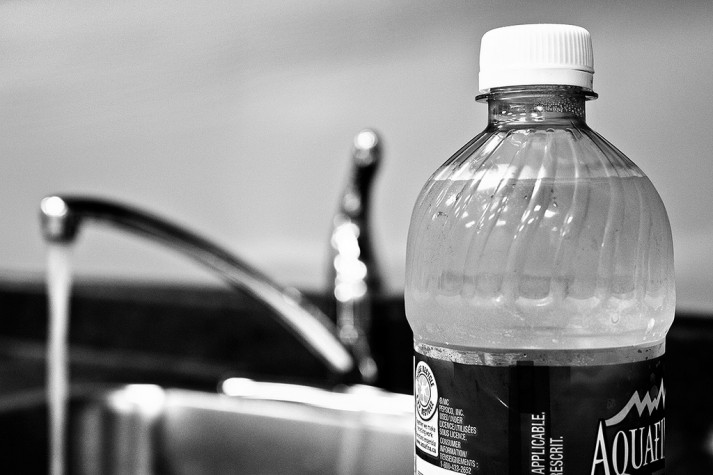
In 2012, total U.S. bottled water consumption increased to 9.67 billion gallons, up from 9.1 billion gallons in 2011. Every person in America drank an average of 30.8 gallons of bottled water last year. Bottled water sales increased by 6.7 percent in 2012, and now total $11.8 billion.
Only in America can an industry selling tap water in a plastic bottle become an absolutely juggernaut, as Lewis Black so eloquently points out (NSFW Language):
It is very likely that your local tap water is fine! Check your local government for more information, but if you live in the United States, chances are your tap water is equal or better to the bottled stuff! Heck Coca-Cola knows this, as their Dasani Brand is ultimately filtered tap water.
Want that bottle of Fiji water because it’s clean and pure and provides you with magical abilities like Percy Jackson? There is less arsenic in Cleveland Tap water than Fiji water! Much less expensive too ![]()
If you don’t like the taste of, or are concerned about your local tap water, try a Brita filter or something equivalent. Stop going through hundreds of plastic bottles of water every year, and drink the water you already have available to you.
Yes, if the choice is between no beverage, a coke, or a bottle of water, go with the bottled water!
Just don’t go out of your way to buy water from the polar ice caps, Hoth glaciers, or the Swiss Alps because you think it’s going to be healthier for you, provide you with more of a benefit than regular water. That’s all hype, sucka!
Read more about bottled water hype here at WiseBread.
If you are going to bring water with you, follow these guidelines as to what kind of container you’ll use.
After doing our own research, we ultimately decided on stainless steel for Nerd Fitness water bottles for the reasons above.
Okay so what do I do?
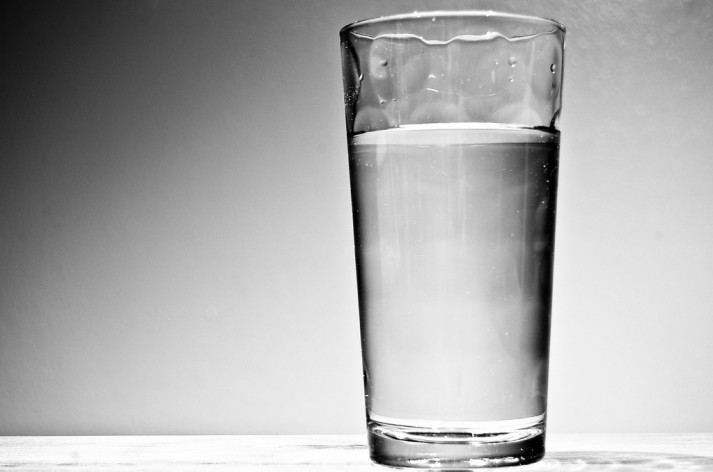
“Ugh, Steve, you just spent 2300 words ripping apart water. I thought water was important!”
Yes, yes it is.
Water keeps your body functioning properly. Consume it when you feel the need and your thirst will be quenched, your body will stay regulated, and you will live to see tomorrow.
On top of that, consuming water before a meal can help you feel fuller and thus prevent you from overeating. If this works for you, keep doing what you’re doing!
Water should definitely be consumed when you are thirsty! But the importance of water has been overblown, and you don’t need to spend hundreds of dollars each year on fancy bottled water from glaciers.
Here’s everything in a nutshell:
- Chill out about water, don’t overthink it.
- Drink when you feel thirsty.
- If your pee is a darker color than normal, drink more water. If it’s lighter than normal, drink less.
- Don’t stress about drinking water neurotically throughout the day.
- Dont bother with the energy drinks unless your exercise is intense, over several hours, or in very hot conditions.
Bet you didn’t think I could write that much about such a simple beverage eh?
Have any more questions for me? What else do you need to know about water?
Let’s hear it.
-Steve
###
photo source: Han Shot First: Aquaman, jDevaun: Gatorade, RLhyde: Glass, CIRILOMAN: drop in glass, philografy: bottled water, 27147: coffee cup, A Guy Taking Pictures: Ice Crystals, Adventures With My Dogs: Waterfall